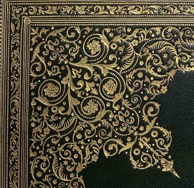“I have more confidence in the dead than the living”, writes William Hazlitt (1778-1830), the eminent English essayist of the Romantic Era, in his essay “On Reading Old Books”. This may come as a bit of a surprise. A critic and acquaintance of Wordsworth and Coleridge, Hazlitt was witnessing the poetic sea change of the Romantic period first-hand. He was immersed in a contemporary literature scene that must have been amongst the most thriving, exhilarating and inspiring in the history of English literature. And yet even Hazlitt found himself abandoning the literary rumpus of his day for the quiet meditation of an old book:
All these contradictions [of reading contemporary authors] and petty details interrupt the calm current of our reflections. If you want to know what any of the authors were who lived before our time, and are still objects of anxious inquiry, you have only to look into their works. But the dust and smoke and noise of modern literature have nothing in common with the pure, silent air of immortality.
.jpg)
For Hazlitt, old books are familiar books. New books, he says, are like “a strange dish”: “There is a want of confidence and security to second appetite.” An old book, on the other hand, is the trusted plain slice at the pizza corner, the burger and fries from your local pub, or a tasty home-baked quiche from a well-tried recipe: you know what you’re in for, and you know it’s going to be delicious. Of course, with old books, you get the additional advantage that, like an old and trusted friend, you can always learn something new. And you can take your time, too, without having to worry about rushing to the end; you can linger, or skip and skim, for you’ve been there already.
But Hazlitt rightly points out that the familiarity of old books extends to another level, namely the history shared by the book and the reader:
I not only have the pleasure of imagination and of a critical relish of he work, but the pleasures of memory added to it. It recalls the same feelings and associations which I had in first reading it, and which I can never have again in any other way. Standard productions of this kind are links in the chain of our conscious being. They bind together the different scattered divisions of our personal identity. They are landmarks and guides in our journey through life. They are pegs and loops on which we can hang up, or from which we can take down, at pleasure, the wardrobe of a moral imagination, the relics of our best affections, the tokens and records of our happiest hours.
In this passage Hazlitt sums up what I believe to be one of the most essential parts of the reading experience and one of the most sorely neglected parts of reader-response theory — the individual’s own history of reading. This history includes not only our thoughts and ideas, but also the physical journey we undertook to obtain a book, or how we happened to come upon it. Hazlitt, for example, recounts the delight he experienced when he received Cooke’s pocket edition of Tom Jones, and sniffs at the cheap novels from the Ballantyne brothers or the Minerva Press. Cooke’s Tom Jones, he remembers, “broke the spell”, and “Cooke’s edition of the ‘British Novelists’ was to me a dance through life, a perpetual gala-day. The sixpenny numbers of this work regularly contrived to leave off just in the middle of a sentence, and in the nick of the story. With what eagerness I used to look forward to the next number, and open the prints!” Hazlitt ends on the romantic note:
To what nameless ideas did they give rise, — with what airy delights I filled up the outlines, as I hung in silence over the page! Let me still recall them, that they may breathe fresh life into me, and that I may live that birthday of thought and romantic pleasure over again! Talk of the ideal! This is the only true ideal — the heavenly tints of Fancy reflected in the bubbles that float upon the spring-tide of human life.
From Reading in Bed, collected by Steven Gilbar.








